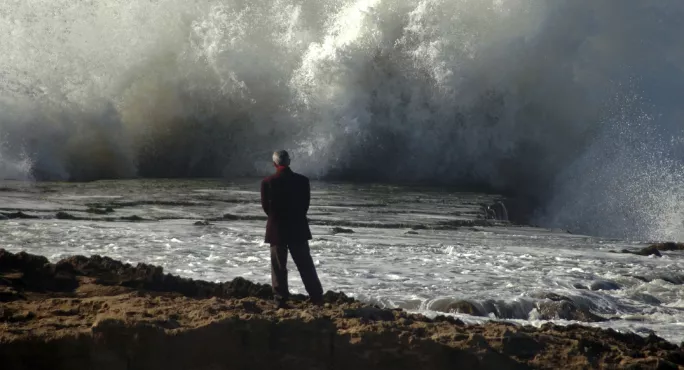- Home
- ‘Our schools are drowning under a tidal wave of human misery’
‘Our schools are drowning under a tidal wave of human misery’

The ward my school is in is one of the most deprived in the country.
And outside our school gates, the monsters of poverty are running amok within the community we serve.
Parents come to us with out-of-control debt, unaffordable rent and sanctions that see them with no source of income for weeks. The vast majority struggling to cope are not those on benefits, but those in low-paid, insecure jobs who are facing ever-mounting expenses.
The number of children whose families require support now comprises more than a quarter of the school. Among these cases, the complexity of their needs has increased drastically. In the past two years, 24 per cent more have been rated as a “red” or “amber” risk on our pastoral register.
The most common reason for inclusion in these categories? Risk for problematic drug or alcohol use within the home, domestic violence and mental health issues, such as self-harm and suicidal thoughts. My school is not alone: my colleagues from all types of socioeconomic profiles tell me that they face the same issues in ever-increasing numbers.
Funding squeeze
As this tidal wave of human misery has hit us, it’s accompanied by a reduction in services, a squeezing of public service funding and a well-documented public service pay cap.
So, what does this squeeze on public service funding mean - and how does it impact our schools?
- School nurses are struggling to support in any way other than attending child protection meetings.
- The police are struggling to provide any sort of family support or early intervention.
- We are lucky to still have some level of Children’s Centre support, but service is much-reduced.
- Educational psychologists’ time is as rare as hen’s teeth.
- Child and adolescent mental health services (CAMHS) are struggling to keep waiting lists down.
- Waiting times for paediatric consultations are considerable and off-putting.
- Social services are struggling to maintain provision with huge problems around retention of staff in the face of huge caseloads.
Our system is groaning. There are days when I feel like the little Dutch boy standing with my finger in a dyke, feeling the pressure grow behind it as a tsunami hits.
In the face of this growing pressure, our community and local services are trying to rise to the challenge.
We have created a network of more than 150 mental health champions from nearly every primary, secondary school and college, from every GP’s surgery and from every third-sector provider. All of whom are supported by CAMHS staff, who have helped to provide mental health training and resources to support children, parents and staff.
Support network
My school has established a large support network from within the community, hugely assisted by our local NHS director for health and wellbeing. But, it shouldn’t be this hard. We shouldn’t have to be so reliant on goodwill and the networking ability of senior leadership teams in schools.
Our schools are struggling to keep pace with a growing level of expectation alongside a surge of community problems and shrinking funding for service provision.
My senior leadership team, alongside the governors, is determined that the wellbeing of staff and pupils will not buckle under the pressure of tests and the ridiculously high levels of expectation. This is managed while simultaneously ensuring that every child experiences an engaging and broad curriculum.
We are told that schools must stop the rising tide of mental health problems in pupils and that we must do that while absorbing significant real-term cuts in funding.
It is little wonder then, that many school improvement plans for this year, ours included, contain a significant focus on staff wellbeing.
Conference response
Managing all of these conflicting pressures feels like an act of heroism or magic that reminds me of the words of that late magician with a dancing wife: “You’ll like this...not a lot.”
At a recent conference on the role of schools in promoting mental health in young people, my fellow panel members and I were asked what single request we would make of ministers. The response was unanimous: we need the resources to meet the demands we face, both in terms of time and funding. We are not magicians. As the November budget approaches, we are all looking to see if there is any hope that the tide will turn slightly and that the building pressure upon our doors will ease.
These are difficult times indeed.
I hope these times will be remembered in future staff rooms as a darkly heroic phase that we survived and emerged from bloodied but unbowed. And I hope that the beauty of our job, which is to be found in helping young people to grow and develop into the fine young people that we know them to be, will remain the privilege it always has been, and not a lifetime of battling galloping monsters and poisonous snakes.
Siobhan Collingwood is the headteacher of Morecambe Bay Community Primary School, winner of the Creative School of the Year category at the 2017 Tes Schools Awards.
Want to keep up with the latest education news and opinion? Follow Tes on Twitter and like Tes on Facebook
Keep reading for just £1 per month
You've reached your limit of free articles this month. Subscribe for £1 per month for three months and get:
- Unlimited access to all Tes magazine content
- Exclusive subscriber-only stories
- Award-winning email newsletters



